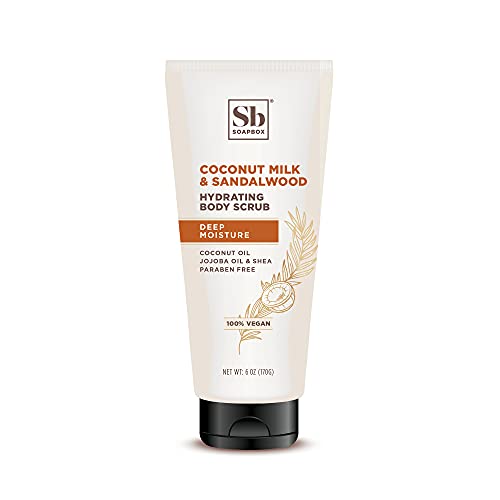
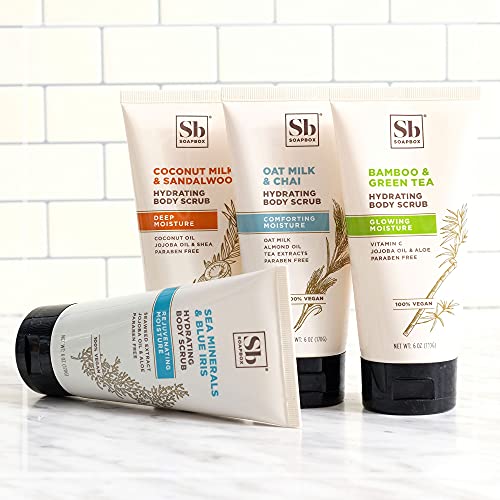

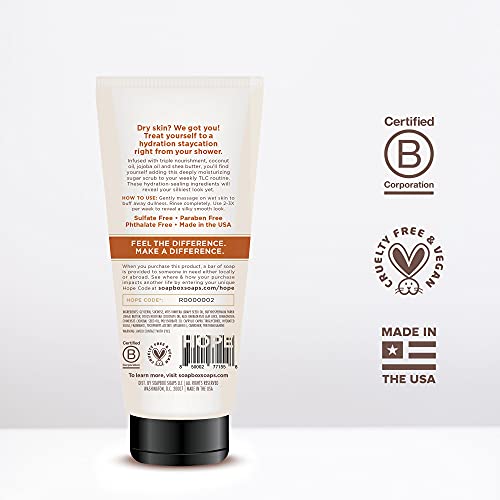
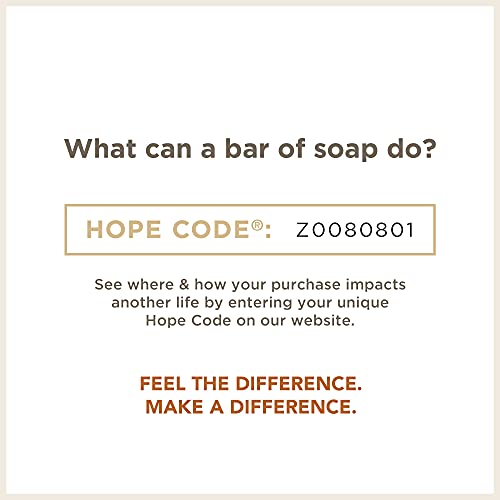
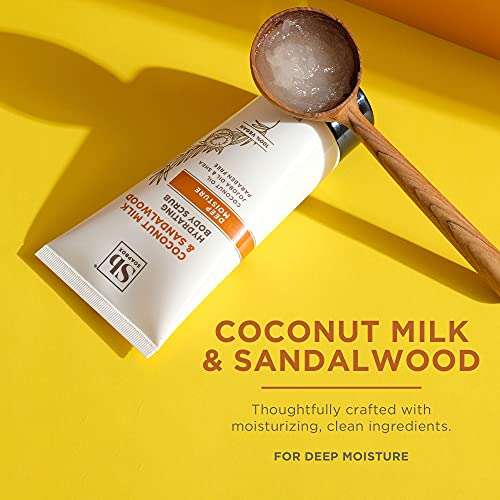
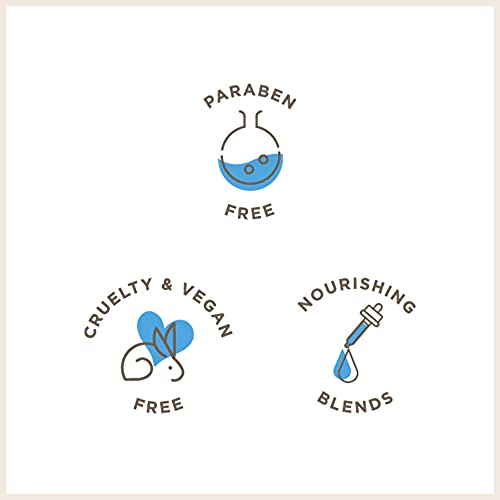
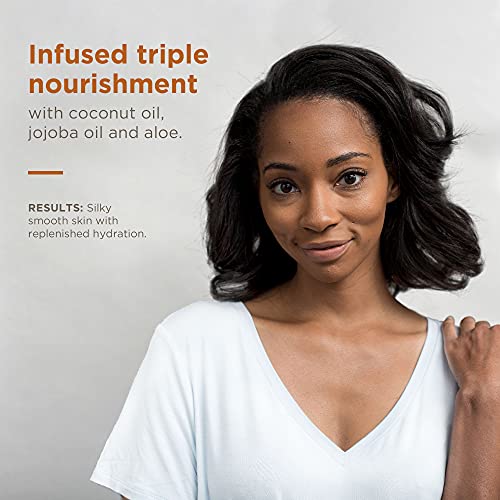
Soapbox Body Scrub - Deeply Hydrating Coconut Milk & Sandalwood, Vegan & Paraben Free - 6oz


Fragrance
High RiskFragrance refers to a mixture of aromatic compounds used in products to provide scent. It is commonly listed as 'fragrance' or 'parfum' on product labels and can serve various functions, including enhancing user experience and masking undesirable odors.
Sustai Insights
Fragrance offers functional benefits by improving product appeal; however, it poses significant health risks, notably a high likelihood of causing allergies and allergic contact dermatitis. Environmental risks include potential pollution and endocrine disruption, though its overall carcinogenicity is low. Regulatory bodies have noted concerns regarding its use, leading to a high-risk classification. Safe usage practices should be observed, and alternatives such as natural essential oils are recommended for those sensitive to synthetic fragrances.
Benzyl Alcohol
High RiskBenzyl alcohol is a naturally occurring and synthetic aromatic alcohol commonly used as a solvent, preservative, and fragrance ingredient in various products. It is found in both plant sources and as a synthetic compound, functioning primarily to maintain product stability and enhance fragrance profiles.
Sustai Insights
Benzyl alcohol serves effectively as a preservative and solvent, contributing to product stability and sensory qualities. However, it poses potential health risks, particularly as an allergen, with high concern for immunotoxicity. Environmental risks include being a pollutant with low bioaccumulation potential. Regulatory agencies have established restrictions on its use in certain products. Overall, the risk level associated with benzyl alcohol is assessed as high, necessitating careful consideration of its use and potential alternatives.
Behentrimonium Methosulfate
Medium RiskBehentrimonium methosulfate is a quaternary ammonium salt commonly used in cosmetic formulations as a conditioning agent and emulsifier. It improves the texture and manageability of hair and skin products, enhancing their performance and user experience.
Sustai Insights
Behentrimonium methosulfate offers effective conditioning benefits, making hair and skin products more manageable. It is generally considered low risk for carcinogenicity and developmental toxicity, with moderate concerns regarding allergies. While it poses minimal environmental risks, regulatory bodies have noted some usage restrictions. Overall, this ingredient carries a medium risk level, necessitating careful usage considerations and potential alternatives for sensitive individuals.
Glycerin
Medium RiskGlycerin (also called glycerol) is a naturally occurring compound commonly used in personal care and cosmetic products. It functions as a humectant, attracting moisture to the skin, and is also utilized as a solvent and emollient to enhance product texture and stability.
Sustai Insights
Glycerin is valued for its effective moisturizing properties and biodegradability, making it a widely accepted ingredient in formulations. It poses low health risks, including low concerns for carcinogenicity and allergies. However, moderate use restrictions exist due to regulatory guidelines. While glycerin does not significantly contribute to environmental pollution, its production process should be ethically sourced. Overall, glycerin holds a medium risk level, emphasizing the importance of safe usage practices and considering sustainable alternatives.
Pyrus Malus (Apple) Fruit
Low RiskPyrus malus (apple) fruit is the fruit of the apple tree, commonly used in cosmetic formulations. It serves various functions, including acting as a moisturizer and providing antioxidant properties due to its natural compounds.
Sustai Insights
Pyrus malus (apple) fruit offers functional benefits such as moisturizing and antioxidant effects, contributing to skin health. It is sustainably sourced and poses low health risks, with minimal concerns regarding carcinogenicity, allergenic potential, or developmental toxicity. Environmental impacts are also low. Regulatory bodies do not impose significant restrictions on its use, classifying it as low risk overall. Safe usage practices include adhering to recommended concentrations in product formulations. Alternatives like other fruit extracts may provide similar benefits with comparable safety profiles.
Oryza Sativa (Rice) Bran Extract
Low RiskOryza sativa (rice) bran extract is an extract derived from the outer layer of rice grains, primarily used for its moisturizing and conditioning properties in cosmetic formulations. It is rich in nutrients, including vitamins, minerals, and antioxidants, contributing to its effectiveness in skin care products.
Sustai Insights
Oryza sativa (rice) bran extract offers functional benefits such as skin conditioning and antioxidant properties, making it a valuable ingredient in cosmetics. It is generally regarded as safe, with low concerns regarding carcinogenicity, allergenic potential, and reproductive toxicity. Environmental risks are minimal, with no significant pollutant or bioaccumulation potential noted. Regulatory agencies do not impose strict restrictions on its use. Recommendations for safe usage include avoiding excessive concentrations in formulations. Overall, the ingredient is assessed as low risk, making it a suitable option in skin care products.
Hydroxypropyltrimonium Hydrolyzed Corn Starch
Low RiskHydroxypropyltrimonium hydrolyzed corn starch is a cosmetic ingredient derived from corn starch that functions primarily as a conditioning agent and film-forming agent in hair and skin care products. It enhances the texture and feel of formulations, providing a smooth and soft application experience.
Sustai Insights
This ingredient offers functional benefits such as effective conditioning and film-forming properties, improving product performance. It is associated with low health risks, including a low potential for carcinogenicity, allergies, and developmental toxicity. The ingredient poses minimal environmental risks and is not classified as a pollutant or bioaccumulative. Regulatory assessments indicate few restrictions, suggesting a low overall risk level. Safe usage practices should be followed, and while there are no significant concerns, alternatives such as other biodegradable conditioning agents may be considered. Overall, the ingredient is assessed to have a low risk profile.
Stearyl Alcohol
Low RiskStearyl alcohol is a compound produced from the hydrogenation of stearic acid, commonly used in cosmetic formulations as an emulsifier and thickening agent. It helps stabilize products by blending oil and water phases, enhancing texture and consistency.
Sustai Insights
Stearyl alcohol provides functional benefits as an emulsifier and stabilizer, contributing to improved product texture. It is generally regarded as safe with low concerns for cancer, allergies, and reproductive toxicity. However, it may cause moderate skin, eye, or respiratory irritation. Regulatory bodies do not impose significant restrictions, indicating a low overall risk. While it poses minimal health and environmental hazards, caution is advised for sensitive individuals. Alternatives like cetyl alcohol or plant-based emulsifiers may offer safer options for formulators.
Helianthus Annuus (Sunflower) Seed Extract
Low RiskHelianthus annuus (sunflower) seed extract is derived from sunflower seeds and is commonly used in cosmetic formulations for its emollient properties. It serves as a moisturizer and skin-conditioning agent, contributing to the overall texture and feel of products.
Sustai Insights
Helianthus annuus (sunflower) seed extract provides functional benefits such as moisturizing and skin-conditioning, while being sustainably sourced and biodegradable. Health risks are minimal, with low concerns for carcinogenicity, allergies, or reproductive toxicity. Environmental impact is also low, with no evidence of bioaccumulation or significant pollution. Regulatory status indicates no current restrictions. Overall, the ingredient is assessed to have a low risk level, making it a safe choice for cosmetic use.
Water
Low RiskWater is a clear, colorless liquid essential for various biological processes. It serves as a solvent in formulations, facilitating the dissolution of other ingredients and enhancing product texture and application. Additionally, water plays a crucial role in hydration and is a key component in many cosmetic and personal care products.
Sustai Insights
Water is an effective solvent and hydrator, contributing to the texture and efficacy of formulations. It is biodegradable and generally regarded as safe, with low concerns regarding carcinogenicity, allergies, and reproductive toxicity. However, excessive water usage can lead to environmental concerns, particularly regarding resource depletion. Regulatory bodies do not impose restrictions on water use in cosmetics. Overall, the risks associated with water are low, making it a safe and essential ingredient.
Cetyl Alcohol
Low RiskCetyl alcohol is a long-chain organic alcohol commonly used in cosmetic formulations. It serves as an emollient, emulsifier, and thickening agent, enhancing the texture and stability of products. Cetyl alcohol is derived from natural sources, such as coconut or palm oil, and is often included in creams, lotions, and hair conditioners.
Sustai Insights
Cetyl alcohol offers functional benefits as an emollient and emulsifier, improving product texture and stability. It is biodegradable and sourced from renewable materials, contributing to sustainability. Health risks are minimal, with low concerns for carcinogenicity, allergies, or reproductive toxicity. Environmental impact is also low, with no significant pollutant or bioaccumulation potential. Regulatory bodies have not placed restrictions on its use, indicating a favorable safety profile. Overall, cetyl alcohol is assessed as low risk, and safe usage practices include ensuring proper formulation concentrations.
Cetearyl Alcohol
Low RiskCetearyl alcohol is a mixture of cetyl and stearyl alcohol, primarily used as an emulsifier and thickener in cosmetic formulations. It helps stabilize products, improve texture, and enhance moisturizing properties, making it common in creams and lotions.
Sustai Insights
Cetearyl alcohol offers functional benefits as an effective emulsifier and skin-conditioning agent, contributing to product stability and texture. It is generally recognized as safe, with low concerns for carcinogenicity, allergies, or reproductive toxicity. Environmental risks are minimal, as it is biodegradable and has low pollutant potential. Regulatory bodies have not imposed significant restrictions on its use. Overall, cetearyl alcohol is assessed to carry low risk, making it a suitable ingredient choice in cosmetic products.
Pyrus Malus (Apple) Fruit
Low RiskPyrus malus (apple) fruit is the fruit of the apple tree, commonly used in cosmetic formulations. It serves various functions, including acting as a moisturizer and providing antioxidant properties due to its natural compounds.
Sustai Insights
Pyrus malus (apple) fruit offers functional benefits such as moisturizing and antioxidant effects, contributing to skin health. It is sustainably sourced and poses low health risks, with minimal concerns regarding carcinogenicity, allergenic potential, or developmental toxicity. Environmental impacts are also low. Regulatory bodies do not impose significant restrictions on its use, classifying it as low risk overall. Safe usage practices include adhering to recommended concentrations in product formulations. Alternatives like other fruit extracts may provide similar benefits with comparable safety profiles.
Oryza Sativa (Rice) Bran Extract
Low RiskOryza sativa (rice) bran extract is an extract derived from the outer layer of rice grains, primarily used for its moisturizing and conditioning properties in cosmetic formulations. It is rich in nutrients, including vitamins, minerals, and antioxidants, contributing to its effectiveness in skin care products.
Sustai Insights
Oryza sativa (rice) bran extract offers functional benefits such as skin conditioning and antioxidant properties, making it a valuable ingredient in cosmetics. It is generally regarded as safe, with low concerns regarding carcinogenicity, allergenic potential, and reproductive toxicity. Environmental risks are minimal, with no significant pollutant or bioaccumulation potential noted. Regulatory agencies do not impose strict restrictions on its use. Recommendations for safe usage include avoiding excessive concentrations in formulations. Overall, the ingredient is assessed as low risk, making it a suitable option in skin care products.
Hydroxypropyltrimonium Hydrolyzed Corn Starch
Low RiskHydroxypropyltrimonium hydrolyzed corn starch is a cosmetic ingredient derived from corn starch that functions primarily as a conditioning agent and film-forming agent in hair and skin care products. It enhances the texture and feel of formulations, providing a smooth and soft application experience.
Sustai Insights
This ingredient offers functional benefits such as effective conditioning and film-forming properties, improving product performance. It is associated with low health risks, including a low potential for carcinogenicity, allergies, and developmental toxicity. The ingredient poses minimal environmental risks and is not classified as a pollutant or bioaccumulative. Regulatory assessments indicate few restrictions, suggesting a low overall risk level. Safe usage practices should be followed, and while there are no significant concerns, alternatives such as other biodegradable conditioning agents may be considered. Overall, the ingredient is assessed to have a low risk profile.
Stearyl Alcohol
Low RiskStearyl alcohol is a compound produced from the hydrogenation of stearic acid, commonly used in cosmetic formulations as an emulsifier and thickening agent. It helps stabilize products by blending oil and water phases, enhancing texture and consistency.
Sustai Insights
Stearyl alcohol provides functional benefits as an emulsifier and stabilizer, contributing to improved product texture. It is generally regarded as safe with low concerns for cancer, allergies, and reproductive toxicity. However, it may cause moderate skin, eye, or respiratory irritation. Regulatory bodies do not impose significant restrictions, indicating a low overall risk. While it poses minimal health and environmental hazards, caution is advised for sensitive individuals. Alternatives like cetyl alcohol or plant-based emulsifiers may offer safer options for formulators.
Behentrimonium Methosulfate
Medium RiskBehentrimonium methosulfate is a quaternary ammonium salt commonly used in cosmetic formulations as a conditioning agent and emulsifier. It improves the texture and manageability of hair and skin products, enhancing their performance and user experience.
Sustai Insights
Behentrimonium methosulfate offers effective conditioning benefits, making hair and skin products more manageable. It is generally considered low risk for carcinogenicity and developmental toxicity, with moderate concerns regarding allergies. While it poses minimal environmental risks, regulatory bodies have noted some usage restrictions. Overall, this ingredient carries a medium risk level, necessitating careful usage considerations and potential alternatives for sensitive individuals.
Helianthus Annuus (Sunflower) Seed Extract
Low RiskHelianthus annuus (sunflower) seed extract is derived from sunflower seeds and is commonly used in cosmetic formulations for its emollient properties. It serves as a moisturizer and skin-conditioning agent, contributing to the overall texture and feel of products.
Sustai Insights
Helianthus annuus (sunflower) seed extract provides functional benefits such as moisturizing and skin-conditioning, while being sustainably sourced and biodegradable. Health risks are minimal, with low concerns for carcinogenicity, allergies, or reproductive toxicity. Environmental impact is also low, with no evidence of bioaccumulation or significant pollution. Regulatory status indicates no current restrictions. Overall, the ingredient is assessed to have a low risk level, making it a safe choice for cosmetic use.
Water
Low RiskWater is a clear, colorless liquid essential for various biological processes. It serves as a solvent in formulations, facilitating the dissolution of other ingredients and enhancing product texture and application. Additionally, water plays a crucial role in hydration and is a key component in many cosmetic and personal care products.
Sustai Insights
Water is an effective solvent and hydrator, contributing to the texture and efficacy of formulations. It is biodegradable and generally regarded as safe, with low concerns regarding carcinogenicity, allergies, and reproductive toxicity. However, excessive water usage can lead to environmental concerns, particularly regarding resource depletion. Regulatory bodies do not impose restrictions on water use in cosmetics. Overall, the risks associated with water are low, making it a safe and essential ingredient.
Glycerin
Medium RiskGlycerin (also called glycerol) is a naturally occurring compound commonly used in personal care and cosmetic products. It functions as a humectant, attracting moisture to the skin, and is also utilized as a solvent and emollient to enhance product texture and stability.
Sustai Insights
Glycerin is valued for its effective moisturizing properties and biodegradability, making it a widely accepted ingredient in formulations. It poses low health risks, including low concerns for carcinogenicity and allergies. However, moderate use restrictions exist due to regulatory guidelines. While glycerin does not significantly contribute to environmental pollution, its production process should be ethically sourced. Overall, glycerin holds a medium risk level, emphasizing the importance of safe usage practices and considering sustainable alternatives.
Fragrance
High RiskFragrance refers to a mixture of aromatic compounds used in products to provide scent. It is commonly listed as 'fragrance' or 'parfum' on product labels and can serve various functions, including enhancing user experience and masking undesirable odors.
Sustai Insights
Fragrance offers functional benefits by improving product appeal; however, it poses significant health risks, notably a high likelihood of causing allergies and allergic contact dermatitis. Environmental risks include potential pollution and endocrine disruption, though its overall carcinogenicity is low. Regulatory bodies have noted concerns regarding its use, leading to a high-risk classification. Safe usage practices should be observed, and alternatives such as natural essential oils are recommended for those sensitive to synthetic fragrances.
Cetyl Alcohol
Low RiskCetyl alcohol is a long-chain organic alcohol commonly used in cosmetic formulations. It serves as an emollient, emulsifier, and thickening agent, enhancing the texture and stability of products. Cetyl alcohol is derived from natural sources, such as coconut or palm oil, and is often included in creams, lotions, and hair conditioners.
Sustai Insights
Cetyl alcohol offers functional benefits as an emollient and emulsifier, improving product texture and stability. It is biodegradable and sourced from renewable materials, contributing to sustainability. Health risks are minimal, with low concerns for carcinogenicity, allergies, or reproductive toxicity. Environmental impact is also low, with no significant pollutant or bioaccumulation potential. Regulatory bodies have not placed restrictions on its use, indicating a favorable safety profile. Overall, cetyl alcohol is assessed as low risk, and safe usage practices include ensuring proper formulation concentrations.
Benzyl Alcohol
High RiskBenzyl alcohol is a naturally occurring and synthetic aromatic alcohol commonly used as a solvent, preservative, and fragrance ingredient in various products. It is found in both plant sources and as a synthetic compound, functioning primarily to maintain product stability and enhance fragrance profiles.
Sustai Insights
Benzyl alcohol serves effectively as a preservative and solvent, contributing to product stability and sensory qualities. However, it poses potential health risks, particularly as an allergen, with high concern for immunotoxicity. Environmental risks include being a pollutant with low bioaccumulation potential. Regulatory agencies have established restrictions on its use in certain products. Overall, the risk level associated with benzyl alcohol is assessed as high, necessitating careful consideration of its use and potential alternatives.
Cetearyl Alcohol
Low RiskCetearyl alcohol is a mixture of cetyl and stearyl alcohol, primarily used as an emulsifier and thickener in cosmetic formulations. It helps stabilize products, improve texture, and enhance moisturizing properties, making it common in creams and lotions.
Sustai Insights
Cetearyl alcohol offers functional benefits as an effective emulsifier and skin-conditioning agent, contributing to product stability and texture. It is generally recognized as safe, with low concerns for carcinogenicity, allergies, or reproductive toxicity. Environmental risks are minimal, as it is biodegradable and has low pollutant potential. Regulatory bodies have not imposed significant restrictions on its use. Overall, cetearyl alcohol is assessed to carry low risk, making it a suitable ingredient choice in cosmetic products.
Experience the transformative power of Soapbox Gentle Exfoliating Body Scrub, infused with nourishing coconut milk and sandalwood. This 6oz scrub not only buffs away dull skin but also deeply hydrates, leaving your skin visibly smoother and rejuvenated.
- Silky Smooth Skin: Gently exfoliates with sugar granules, removing dead skin cells while promoting a radiant glow.
- Natural Ingredients: Formulated with coconut oil, aloe vera, and shea butter, ensuring a moisturizing experience that's kind to your skin.
- Vegan & Cruelty-Free: Made with ethically sourced, naturally derived ingredients, free from parabens and harmful chemicals.
- Easy Application: Ideal for use 2-3 times a week; simply massage on wet skin for an invigorating cleanse.
- Community Impact: Soapbox believes in giving back; every purchase supports global hygiene initiatives, making a difference in the lives of others.
Elevate your self-care routine with a body scrub that cares for your skin and the planet.
Subscribe & Save with Sustai
- Best Price Guarantee: Always enjoy the lowest prices on sustainable home essentials.
- No Surprises: We’ll notify you before shipping. No hidden fees, ever.
- You’re in Charge: Change, pause, or cancel your subscription anytime with ease.
- Eco-Friendly Deliveries: Our grouped shipments mean less packaging and lower emissions.
Join us on a sustainable journey. Special offers for a limited time! Prices and promotions may change.
Recommended Products
Experience the transformative power of Soapbox Gentle Exfoliating Body Scrub, infused with nourishing coconut milk and sandalwood. This 6oz scrub not only buffs away dull skin but also deeply hydrates, leaving your skin visibly smoother and rejuvenated.
- Silky Smooth Skin: Gently exfoliates with sugar granules, removing dead skin cells while promoting a radiant glow.
- Natural Ingredients: Formulated with coconut oil, aloe vera, and shea butter, ensuring a moisturizing experience that's kind to your skin.
- Vegan & Cruelty-Free: Made with ethically sourced, naturally derived ingredients, free from parabens and harmful chemicals.
- Easy Application: Ideal for use 2-3 times a week; simply massage on wet skin for an invigorating cleanse.
- Community Impact: Soapbox believes in giving back; every purchase supports global hygiene initiatives, making a difference in the lives of others.
Elevate your self-care routine with a body scrub that cares for your skin and the planet.

You can have at most 2 Sustainable Steals products in your cart
Customer Reviews
Customers’ View
Customers appreciate the effectiveness and natural formulation of the Soapbox Gentle Exfoliating Body Scrub. Many users highlight its ability to gently exfoliate and reveal smoother skin, with one reviewer noting that it effectively removes scaly skin on their legs. The scrub's hydrating properties, attributed to ingredients like coconut oil and aloe vera, have also garnered positive feedback, as users report softer and better-moisturized skin after use. While some customers wish for a thicker consistency, they still commend the product for its quality and affordable price. Furthermore, environmentally conscious users value its vegan and cruelty-free formulation, aligning with their health-focused lifestyle. Overall, customers find this body scrub effective and in line with their sustainable choices.
AI-generated from the text of customer reviewsThis product is rated 5.0 of 5.0 stars.
It has received 1 review.




